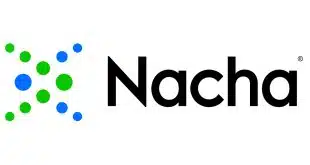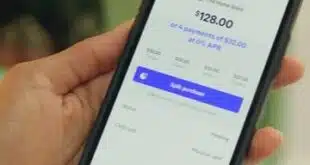In its effort to become a major supplier for merchants seeking to use their iPhones from Apple Inc. as payment card-accepting terminals, VeriFone Holdings Inc. already has announced a major marketing initiative for its PAYware Mobile system that includes a software application on Apple Inc.'s iTunes App Store and a big online advertising campaign. But this week, VeriFone chief executive Douglas Bergeron pulled another marketing trick out of his hat. The PAYware Mobile card swipe for the iPhone will be available in Apple's U.S. stores this month, Bergeron revealed. That means VeriFone will soon have about 220 high-traffic locations in which potential customers can touch its hardware. “This will significantly enhance visibility for PAYware,” Beth Robertson, director of payments research at Pleasanton, Calif.-based Javelin Strategy and Research, tells Digital Transactions News by e-mail. VeriFone is but one of many players that include software developers, independent sales organizations, and other processors seeking to reap new revenues from the ability of the iPhone and other smart phones to function as card-accepting terminals. While at least 30 companies are selling the required software through the App Store as well as similar online stores for other smart phones such as Research in Motion Ltd.'s BlackBerry, or third-party channels, their marketing efforts are largely aimed at business audiences. In distributing the PAYware Mobile card sleeve through Apple's retail outlets, VeriFone can tap a potentially big new customer base of consumers who plan to start or have just started their own small businesses. VeriFone said it was after such an audience when it discussed PAYware Mobile's marketing campaign a month ago (Digital Transactions News, Feb. 1). The sleeve, which includes VeriFone's VeriShield Protect data-encryption technology, fits around the iPhone, enabling the phone to accept card-present transactions. Users can get the needed software from the App Store or VeriFone's PAYware Mobile Web site. VeriFone directs those who want the PAYware Mobile service to five processor partners for merchant accounts. In addition, VeriFone says it has gateway relationships with more than 70 ISOs, enabling iPhone users to conduct online transactions. Analysts have said that VeriFone and its competitors such as Hypercom Corp. and Ingenico need to develop new, higher-margin revenue sources beyond their core but commoditized hardware bases. And that's why VeriFone struck a deal with Apple for physical shelf space, Bergeron said at VeriFone's first-quarter earnings call Tuesday afternoon. “The whole idea is to generate new, non-hardware based revenues,” Bergeron said in response to an analyst's question. “We are not planning on making a lot of money on the sleeves. We are making most of the profitability on the ongoing recurring services revenue. We hope that once consumers start to know this is a small $10 or $20 addendum to their iPhone budget, that they will never end.” VeriFone's hybrid strategy of promoting PAYware Mobile in consumer and business-oriented media will help it compete with rivals such as the new Square mobile-phone payment system being developed by Twitter co-founder Jack Dorsey, according to Javelin's Robertson. “Square received a lot of visibility in non-industry press, and I think that was a wakeup call for VeriFone to position broadly in the media as well as through channels like the Apple retail stores if they want to remain competitive and/or establish market leadership,” she says. According to Bergeron, VeriFone plans later this year to offer a PIN-based version of PAYware Mobile for the so-called EMV chip card payment system coming to Canada and already established elsewhere in the world. The company also plans versions that run on other mobile-phone operating systems than Apple's, including Google Inc.'s Android, the BlackBerry, and Microsoft Corp.'s Windows Mobile. VeriFone reported net revenues of $223.4 million for its fiscal 2010 first quarter ended Jan. 31, up 4.4% from $214 million a year earlier. The company swung to a $10.6 million profit from a $182.6 million loss in 2009's first quarter. VeriFone at that time took a one-time, $178.3 million charge for goodwill impairment.
Check Also
Affirm Expands Its Credit Reporting to TransUnion
Buy now, pay later platform Affirm Holdings Inc. early Tuesday announced it will begin credit …





